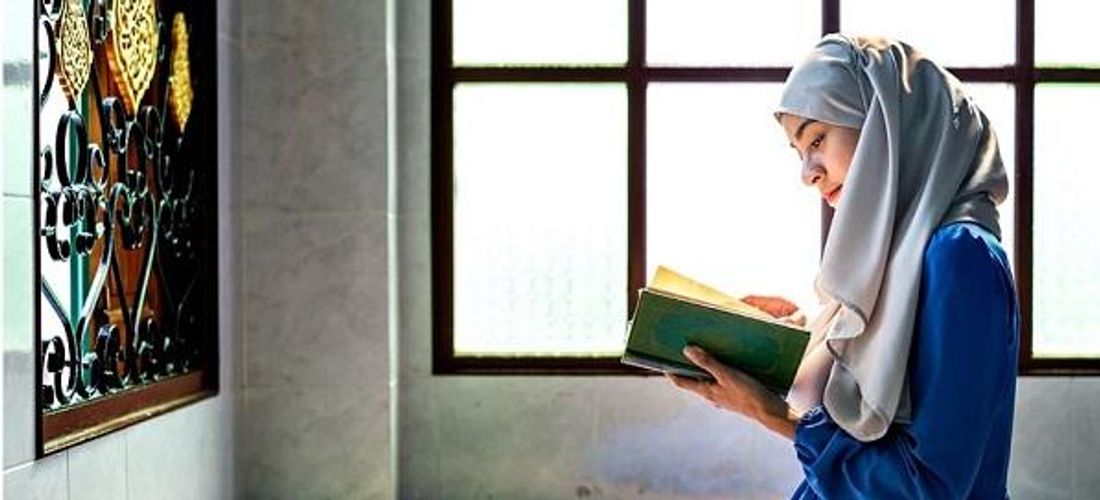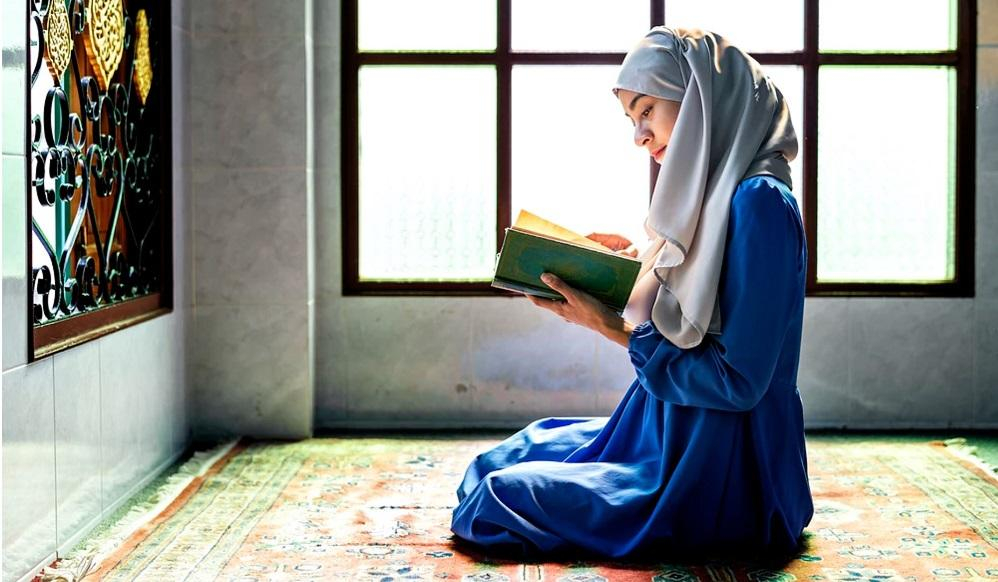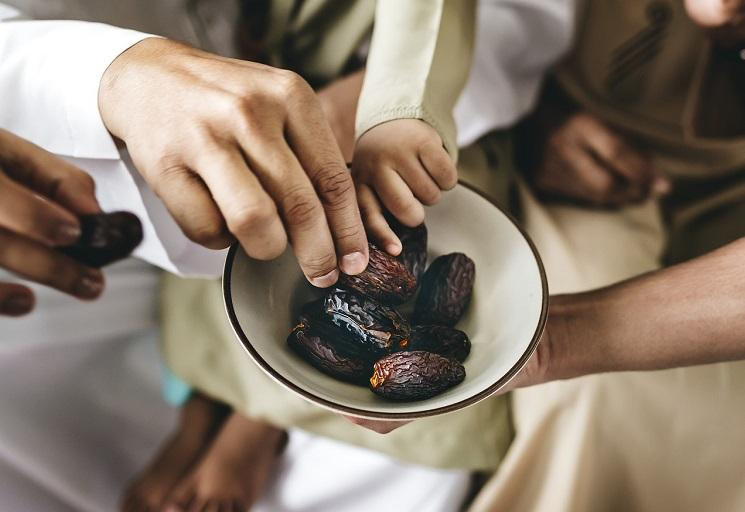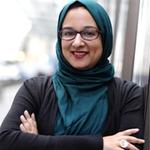What Does Community Look Like During a Ramadan in Qurantine?
Faith
|
Apr 10, 2020
|
5 MIN READ

Fasting in Ramadan is at once an entirely personal, solitary act of worship as well as part of a vast communal coming together to center Allah (S) and direct ourselves away from worldly activities.
I would wager that a Ramadan in quarantine – a COVID-19 Ramadan – will mean that Ramadan will look very different – one that many of us have not seen in a long, long time, if ever at all. And if you boil it down to its most basic, it isn’t the fasting in quarantine that will be our challenge. It’s being deprived of our acts of communal worship – the meeting up for iftar in each other's homes or at the masjid, Jumu’ah salah with masajid overflowing and nightly tarawih prayers. Halaqas and religious programming we would’ve partaken in, charitable projects we may have done. Perhaps even doing suhoor with family and friends.
So then, what will community look like during Ramadan in quarantine?

Image source: Rawpixel
For many of us it’s grieving what we’ve always had and loved and trying to parse out new ways to connect. The sweetness of Ramadan has often stemmed from the efforts many of us make to see each other, whether at an iftar gathering or the masjid for tarawih prayers. That physical closeness with our fellow Muslims who are also fasting and partaking in acts of worship, has been such a hallmark of Ramadan. As a friend was telling me, their family’s routine has been to take their children to their masjid at iftar time and return home after tarawih.
And so, Ramadan is shifting into an opportunity to take all those community acts of worship and meet ups and make it virtual, with Zoom iftars, online Friday khutbahs and other Islamic programming brought to you through Wi-Fi and our smartphones and laptops.
For others more, community during a COVID-19 Ramadan is a lot of what always has been – especially if (for example) you are a convert to Islam, or if you felt unwelcome or rejected by your mosque. Maybe you are single and living away from family, or you are someone who lives with or supports a loved one with chronic illness or disabilities.
Thus, Ramadan continues to be staying at home as you pretty much are used to doing and eking out worship in a more solitary manner. It’s filling our homes, apartments and bedrooms with our singular worship of Allah through prayer, Quran reading, caring for others and, in my case, dhikr in the dark of my autistic son’s bedroom.
**********
This Ramadan, community is now what we make within the walls of our homes. This will be a newer experience for some. As Sheikh Yassir Qadhi said in a Facebook update on March 17 days after the World Health Organization declared COVID-19 to be a pandemic and right after Saudi Arabia announced it would be shutting down all mosques for prayer:
“Lā ilāha illa Allah ...My mind is reeling, my heart shattered. Across the Muslim world, masjids are being shut down, not by outside enemies, but by us ourselves as a result of precautionary measures against the coronavirus. .... Our masjids - the most beloved of all places on earth - are being closed! The prayer and dhikr and Quran that was recited there will be eliminated...from there at least.This means we need to convert our houses into places of worship. We need to fortify our walls with dhikr; we need to raise our voices with the Quran inside of our homes.The worship of Allah MUST continue with even more fervor!!”
I remember reading his words and feeling grief in my heart, but also feeling a sort of frustration with those who never realized what they had until it was taken away. For so many, the masjid (and subsequent social gatherings and programs) equals community. But for me, my home has always been a place of worship. Tarawih, Friday prayers, iftars – this usually happened for most of my family at home, unless we hired a caregiver to stay with my eldest son.
So community during a Ramadan in quarantine, whether it’s the loss of it or the different form it may take, doesn’t phase me. My grieving process for what our family can and cannot participate in ebbed and flowed over the years. This upcoming Ramadan, in a way, has brought the immediate community in which I reside to the doorstep of my family’s annual reality.

But of course this goes way beyond my family. Muslims around the world are grappling with how to “do” this Ramadan with community gatherings at a halt and communal worship (at least still for now) verboten. How does one manage children who may be partaking in distance learning, familial responsibilities, working from home, fasting and elevating our worship without that face-to-face connection so many of us miss?
Many of us have loved ones who are ill, maybe separated from us; or loved ones who are healthcare professionals risking their lives to care for coronavirus patients. What will Ramadan be for them, I wonder? I imagine something similar to what dear friends of ours experienced a few years ago, when their youngest child was diagnosed with cancer days before Ramadan began.
Writer Sakeena Rashid told me her family is planning for virtual iftars, where they’ll share photos of what they’re making to break fast and swap recipes. “We have three hafizs [a person who has memorized the Quran] in the immediate family, so we are trying to figure out virtual halaqas we can all participate in. … We’re planning for a virtual Eid khutbah, and we will dress up still and give gifts. … Even though we can’t leave the house, I’m still going to celebrate and make it as happy a time as possible for the kids.”
**********
As the days passed from when masajid first started closing to the growing reality of a Ramadan where we would have to stay at home, Sheikh Yasir (like so many others) came to realizations about how this Ramadan will be for the ummah:
“For one segment, this will prove to be the worse Ramaḍān of their lives. They won't be able to feel the spirit of the month, and they will drag through the days waiting for the month to end.For another segment, this will be the absolutely all-time best Ramaḍān of their lives. That is because they will discover the pleasure of worshipping Allah in private, and the joys of reciting the Quran, and the serenity that long, quiet prostrations bring in the darkest hours of the night. They will realize that while societal events in previous Ramaḍāns helped them to feel a communal spirit, they came at the cost of personal development.And hence, now, in this time frame, forced by circumstances, and appreciating all those blessings that they took for granted in previous years, they shall discover the real meaning of worship - a mean that transcends society and is independent of crowds and congregations, because all that is needed is the presence of an attentive heart humbling itself in front of its Creator.Yes, I'm sad I won't witness a communal Ramaḍān. But that won't prevent me from trying to make this upcoming Ramaḍān the best one of my life, Insha’Allah!”
And why not? Why can’t it be something unique and special? After all, we worship and fast (those of us who can) for the sake of Allah (S); to cleanse our souls, to spur ourselves to engage in more charity, to grow closer to our deen, to feel the acute hunger and thirst so many others feel. No quarantine can change that.
There is a collective chance here for something beyond what we’ve ever experienced before – a greater understanding of our fellow human’s condition, a deepening of faith, an untethering of whatever we felt we had to do or have in past Ramadans.
Whatever this Ramadan is for you, I pray that it is one where the fasting is made easy, and you strengthen your ties to Allah (S). I hope you find community within yourself and those you may be sheltering with. I encourage you to find ways to support those who are in need, now more than ever, through monetary donations, the changing of our habits and sincere prayer.
In a time when a virus that is unseen to the naked eye has rendered our lives to that which we never imagined, I am reminded that God has always been the greatest unseen constant in our lives. And, He is ready to meet us wherever we are, however we are, whomever we are.
Subscribe to be the first to know about new product releases, styling ideas and more.
What products are you interested in?

